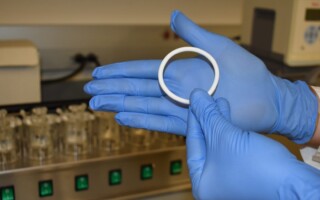
This project, based in Washington, DC, adapts and evaluates an identity affirming group CBT model to promote shared resiliency and address internalized and intersectional stigmas experienced by Black gay/sexual minority men (SMM) who are at risk of or living with HIV. The pilot study will assess the acceptability, feasibility, and appropriateness of the adapted intervention, building on similar work among men who have sex with men (MSM) and transgender women in Nigeria.
Why it Matters: Stigma is a major driver of the HIV epidemic and a barrier to successful HIV programs. Evidence has shown that self-stigma (i.e., stigma that has been internalized) inhibits the use of services such as pre-exposure prophylaxis (PrEP) and antiretroviral therapy (ART) and negatively affects both physical and mental health. At present, there are few evidence-based interventions that address internalized stigma in general, or that address the stigma–related challenges that Black gay/SMM face. The Washington, DC, area is designated as a priority location by the US government–supported program Ending the HIV Epidemic in the US. Notably, Black SMM living in and around the city have a high HIV burden.
The Approach:
This project will take place between September 2023 and May 2025.
What we are doing:
- Adapting an affirmative group CBT intervention from a previous study conducted among MSM and transgender women in Nigeria, while making ongoing changes based on input from the community and other key stakeholders. The study will include focus group discussions and in-depth interviews.
- Evaluating the intervention’s effects using baseline and follow-up surveys as well as in-depth interviews with participants and facilitators. The study will measure the feasibility, acceptability, and preliminary efficacy of the program with respect to mental health, stigma, and use of HIV services.
The Big Picture:
This study has real potential to demonstrate the feasibility and initial effectiveness of a program to improve HIV wellness among Black SMM in the Washington, DC, area—including improvements in mental health, stigma, and HIV self-care. The resulting program will be ready for adaptation and use in other communities and locations to support broader efforts to promote HIV wellness.
Partners:
Funders:
District of Columbia Center for Aids Research (DC-CFAR) at George Washington University, with support from the National Institutes of Health Centers for AIDS Research (NIH CFAR) and National Institutes of Mental Health AIDS Research Centers (ARC)




